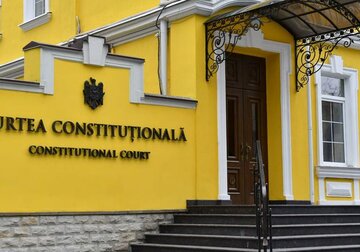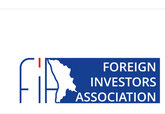
The Constitutional Court of Moldova recognized the provision of the Tax Code defining the concept of tax secrecy as constitutional.
At the same time, the Constitutional Court ruled that tax authorities and courts need to consider the existence of a legitimate purpose to restrict access to information constituting tax secrets. Such a verdict was made by the judges of the Constitutional Court following the consideration of the request of the deputy of parliament Dumitru Alaiba on the verification of the constitutionality of clause 19 of Art. 129 of the Tax Code (TC) regarding the concept of tax secrecy. The Constitutional Court stated that it partially took into account the notification on the control of the constitutionality of this provision of the Tax Code and recognized as constitutional paragraph 19 of Art. 129 of the Tax Code to the extent that the tax authorities and courts can verify, when considering cases concerning access to information, whether there is a legitimate aim to restrict access to information constituting tax secrets, and to determine the balance of competing principles. In the Tax Code, tax secrets mean "any information held by the body exercising powers for tax administration, including information about the taxpayer, which is a commercial secret, with the exception of information about violation of tax legislation." Dumitru Alaiba believes that this rule violates the provisions of Article 34 of the Constitution ("Right to Information") and creates preconditions for violation of Article 58 of the basic law, which obliges citizens to participate in public spending by paying taxes and fees. In his opinion, the concept of "tax secret" does not have a clear legal definition, since it consists of a commercial secret and an undefined category of information, expressed by the phrase "any other information." This overly broad and misleading definition is a major obstacle to transparency and public interest, as well as efforts to prevent corruption and tax evasion. At the same time, according to Alaiba, the ambiguity of the norm creates space for abuse by the tax authorities and contradicts constitutional principles. He said that under the guise of “distorted” laws, the state keeps secret too much information of public interest, for example, in Moldova it is impossible to find out how much taxes a state-owned enterprise pays, or the list of companies receiving VAT refunds from the budget, there is no access to basic information about winners of government tenders, and according to the law, this is motivated by tax secrecy. The deputy said that he asked the State Tax Service for simple information - the amount of taxes paid by citizen Alexandru Dodon (brother of the Socialist Party of RM' chairman Igor Dodon) and the companies, the founder or co-founder of which he is for 2017-2021.But the Tax Service, referring to tax secrets, such data did not provide. Alaiba believes that the STS's answer is correct, but not in relation to citizens. In his opinion, information from state institutions is public and belongs to citizens, and unreasonable restriction of access to it is a serious violation of constitutional rights. //10.08.2021 — InfoMarket.







